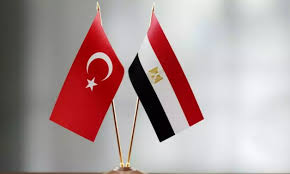When considering relocating your family to a new country, understanding the differences in lifestyle, work environment, expenses, education, security, and social life is crucial. Both Turkey and Egypt offer unique experiences and opportunities, but they also come with distinct challenges and benefits. Here’s a detailed comparison to help you make an informed decision.
Work Environment
Turkey
Job Opportunities: Turkey has a diverse economy with strong sectors in manufacturing, tourism, and technology. Major cities like Istanbul, Ankara, and Izmir offer numerous job opportunities, particularly for professionals in business, education, and engineering.
Work Culture: The work culture in Turkey is a blend of European and Middle Eastern influences. Business practices are formal, and relationships are highly valued. Punctuality is important, but there is also a strong emphasis on building personal relationships.
Egypt
Job Opportunities: Egypt’s economy is growing, with significant opportunities in sectors such as construction, telecommunications, and tourism. Cairo, Alexandria, and Giza are the primary economic hubs.
Work Culture: Egyptian work culture tends to be more relaxed and informal compared to Turkey. Networking and personal relationships play a critical role in business success. The concept of “time” can be more flexible, with a greater emphasis on relationships than punctuality.
Cost of Living
Turkey
Housing: Housing costs in Turkey vary widely. Istanbul is the most expensive city, with high rental prices in central areas. However, living in suburban areas or smaller cities can be more affordable.
Utilities and Groceries: Utilities and groceries are reasonably priced. Local markets offer fresh produce at low costs, while supermarkets may be slightly more expensive.
Transportation: Public transportation in major cities is efficient and affordable. Istanbul has an extensive network of buses, trams, and ferries.
Egypt
Housing: Housing in Egypt, particularly in Cairo, can range from very affordable to quite expensive, depending on the neighborhood. Expatriate-friendly areas tend to be more costly.
Utilities and Groceries: Utilities are generally affordable, but electricity costs can be high during the summer due to air conditioning usage. Groceries are inexpensive, with local markets offering a wide variety of fresh produce.
Transportation: Public transportation is available but can be less reliable and less comfortable than in Turkey. Cairo’s traffic congestion is notorious, making commuting times longer.
Education
Turkey
Schools: Turkey offers a range of educational options, including public, private, and international schools. International schools in major cities provide high-quality education with diverse curriculums.
Higher Education: Turkish universities are well-regarded, with several institutions offering programs in English. Education quality is high, particularly in technical and engineering fields.
Egypt
Schools: Egypt has a variety of educational institutions, including public, private, and international schools. International schools in Cairo and Alexandria offer good quality education, often following British or American curriculums.
Higher Education: Egypt is home to prestigious universities like the American University in Cairo and Cairo University. However, the overall quality of higher education can be inconsistent.
Security
Turkey
Safety: Turkey is generally safe, but political tensions and occasional terrorist attacks can affect certain areas. Petty crime, like pickpocketing, can occur in tourist-heavy areas.
Healthcare: Turkey has a well-developed healthcare system with many private and public hospitals offering high standards of care. Health insurance is recommended for expatriates.
Egypt
Safety: Security in Egypt varies. Major tourist areas and expatriate neighborhoods are generally safe, but political instability and crime can be concerns in some regions.
Healthcare: Healthcare services in Egypt range from basic to excellent, particularly in private hospitals in Cairo and Alexandria. Expatriates often prefer private healthcare facilities.
Social Life and Culture
Turkey
Cultural Activities: Turkey has a rich cultural heritage, with numerous historical sites, museums, and festivals. Cities like Istanbul offer a vibrant cultural scene with theaters, galleries, and music venues.
Social Life: Turkish people are known for their hospitality. Expatriates often find it easy to integrate and make friends. Social life revolves around family gatherings, dining out, and community events.
Egypt
Cultural Activities: Egypt’s cultural heritage is one of the richest in the world, with iconic landmarks like the Pyramids and the Sphinx. Cairo offers a bustling cultural scene with museums, theaters, and traditional music.
Social Life: Egyptians are friendly and welcoming. Social life often centers around family, religious celebrations, and social clubs. Expatriates can join various communities and clubs to build a social network.
Conclusion
Choosing between living and working in Turkey or Egypt depends on your family’s priorities and lifestyle preferences. Turkey offers a more structured work environment and efficient public services, while Egypt provides a rich cultural experience and a more relaxed lifestyle. Both countries have their unique advantages and challenges, making them fascinating places to live and work. Conduct thorough research and consider visiting both countries to better understand which environment aligns best with your family’s needs and aspirations.

